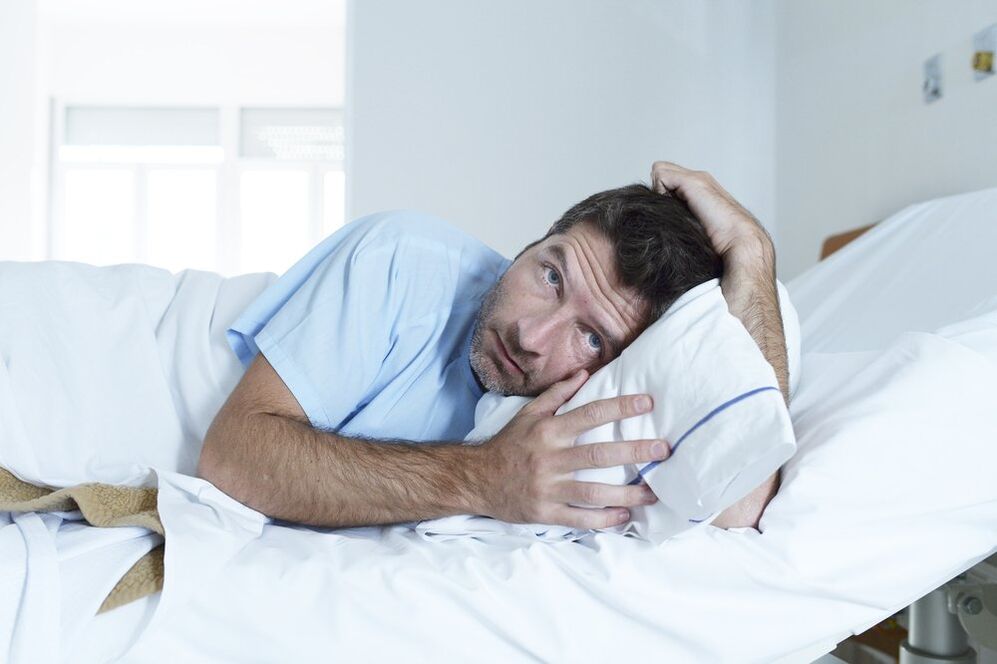Prostatitis is an insidious and complex male disease that is quite difficult to diagnose in the initial stages.It is an inflammatory process that develops in the area of the prostate and is associated with pain, problems with urination and the appearance of problems related to men's health.
Prostatitis - what is it?

Prostatitis is inflammation of the prostate, i.e. the prostate gland located between the bladder and the male genital organ, surrounding the urethra, the so-called urethra.The latter receives a substance from the prostate through the channels that promotes the normal functioning of the sperm.The prostate gland is covered by a membrane, the basis of which is connective tissue.The vascular network of the prostate ensures blood supply to the pelvic organs, and the muscles inside the gland themselves help to retain urine and release the secretions of the gland together with the sperm during ejaculation.
The full development of the male prostate is completed by the age of seventeen, after the age of sixty all the functions of the prostate gland decrease, as a result of which its components are replaced by connective tissue.Such changes affect a man's health, causing a general malaise and reduced voice.However, such pathologies can also appear at an early age.The most common reason for this is chronic prostatitis, which is an indolent process of inflammation of the prostate.
In addition to chronic, there is another form of the disease - acute.In the case of acute prostatitis, the infection enters through the excretory channels of the gland.
Symptoms of acute and chronic prostatitis

The most common causes of prostatitis are:
- different types of infections originating from the urethra, testicles and their appendages, bladder or other inflamed organs.
- insufficient physical activity;
- weak immunity;
- the presence of chronic inflammatory processes;
- promiscuity;
- cases of hypothermia;
- urinary tract damage;
- stool disorders;
- blood circulation problems in the pelvic organs;
- hormonal imbalances;
- poor nutrition.
Chronic prostatitis can be diagnosed by the appearance of the following symptoms:
- problems related to sexual functions - pain in the urethra and rectum during ejaculation, weakening of erection, cases of premature ejaculation, lack of orgasm;
- disorders of the urinary system - pain during urination, frequent urge to urinate, painful sensations in the lower abdomen, feeling of incomplete emptying;
- irritation and anxiety caused by increased attention to health status.
The acute form of prostatitis is characterized by high body temperature.The process of urination is difficult and painful.Swelling develops in the prostate area, which can cause urinary retention.
Chronic prostatitis goes away more calmly, but its worsening can never be ruled out.
In addition, improper treatment or lack of treatment of prostatitis can lead to undesirable consequences, such as:
- serious pathologies of the bladder that require surgical intervention;
- development of infertility;
- progressive cystitis;
- development of pyelonephritis and other kidney pathologies;
- purulent inflammation that requires surgical treatment;
- narrowing of the urethra.
Treatment of prostatitis: drugs used

In case of an acute form of the disease, immediate hospitalization of the patient in the urology department is necessary.If this is not possible, prostatitis is treated in the surgical department.
The general method of treating prostatitis in the acute stage includes measures such as:
- Antibacterial therapy.
- Mandatory bed rest.
- Treatment of prostatitis with drugs that ensure normal blood circulation.This approach improves the outflow of lymph as well as venous blood from the inflamed gland and helps remove waste products from the body.
- Use of painkillers.
- It is also possible to use other pain relievers.In addition to relieving pain, these drugs help reduce the inflammatory process to some extent.Sometimes the doctor prescribes rectal suppositories, which contain the same substances as the pills.Thanks to local effects, they enhance the therapeutic effect.
- If prostatitis is accompanied by severe intoxication, detoxification agents are prescribed.
The need for surgical treatment occurs in case of inability to urinate independently or prostate abscess.
Treatment of chronic prostatitis should be comprehensive.The main methods of therapy are:
- Taking non-steroidal anti-inflammatory drugs.
- Taking drugs that promote better lymphatic drainage and improve blood supply to the pelvic organs.
- Taking immunomodulatory drugs.At the same time, the doctor may recommend medication that helps relieve prostate swelling, improves blood microcirculation, and reduces the possibility of blood clots.
- In order to restore an erection, in some cases, antidepressants and sedatives are prescribed.
- Systematic exercise helps to normalize the blood supply and strengthens the muscles of the pelvis.It is good if the exercise series is compiled by a specialist dealing with therapeutic exercises.
- Rectal massage is an effective way to treat chronic prostatitis.Its main purpose is to normalize blood supply, speed up metabolic processes and eliminate congestion.But unfortunately, such a technique sometimes causes not only physical, but also psychological discomfort among representatives of the stronger sex.Because of this, they deliberately postpone the doctor's visit, which makes the situation worse.
Prevention of prostatitis
Everyone knows that any disease, including prostatitis, is easier to prevent than to treat.In order to prevent this unpleasant disease, the following preventive measures should be observed:
- Prevention of hypothermia.
- Maintaining a gentle diet - limiting the consumption of alcoholic beverages, fried foods and canned goods.
- The prevention of prostatitis can also be called the regularity of sexual relations, since one of the reasons for its occurrence is the stagnation of sperm, as well as frequent erections that do not occur without ejaculation.
- Prevention of sexually transmitted diseases is also important.
- Periodic medical visit: An adult man must see a specialist every year for a medical examination.
After the treatment of prostatitis, it is recommended to carry out maintenance outpatient therapy every six months, as well as a one-time treatment in a sanatorium.























